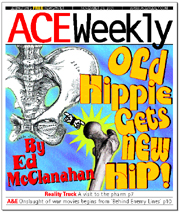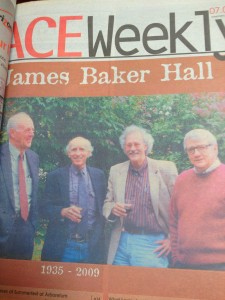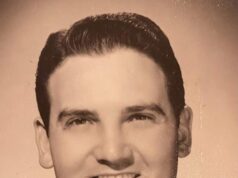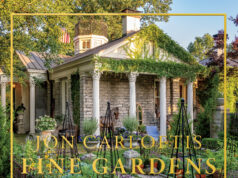Where the Story Takes You
Remembering Captain Kentucky, author Ed McClanahan
By Rhonda Reeves
One of Kentucky’s most well-known and beloved writers died Saturday, November 27, 2021 at the age of 89.



Author Ed McClanahan was an alum of Stanford’s prestigious Wallace Stegner Fellowships and part of Kentucky’s infamous quintet of literati that included friends Gurney Norman, Wendell Berry, Bobbie Ann Mason, and the late James Baker Hall.
The Bracken County native was born in 1932 and was a writer and teacher for most of his working life. In his high school work as a sports writer who transitioned to obits, he discovered a keen dislike for deadlines and writing under pressure, and went on to build a solid literary career of fiction and imaginative non-fiction. Some of his best known works include The Natural Man, Famous People I Have Known, and A Congress of Wonders. As “a glamorous freelance writer,” his vita includes award-winning work for Esquire, Rolling Stone, and Playboy (“Grateful Dead I Have Known” was his breakout piece), and more than three decades as a frequent Ace contributor. He founded the Ohio / Kentucky / Indiana Writers’ Roundtable, a popular conference that was hosted for many years in Augusta/Maysville, and later, Carrollton Kentucky. He was the recipient of two Yaddo fellowships, and an Al Smith Fellowship.
McClanahan’s legacy as a teacher included creative writing stints at Oregon State University, Stanford University, the University of Montana, the University of Kentucky, and Northern Kentucky University. He was profiled as part of KET’s Signature Series in 1994.
In a 1996 Ace interview, he estimated his literary career (at the time) to be “roughly 217 years.” Invited to update the figure a few decades later, he estimated it at “217 years and 15 minutes.”


“My fiction is largely a re-imagined version of things that really happened in my life, whereas my non-fiction is to a considerable extent a pack of lies.”


His detours out west included time spent as part of Ken Kesey’s band of Merry Pranksters, where he was dubbed Captain Kentucky. He’s often credited with inviting Tom Wolfe to visit the gang in California, a visit which ultimately resulted in 1968’s seminal counter-culture chronicle, The Electric Kool-Aid Acid Test. Many years later, McClanahan wrote “Furthurmore, An Afterword,” an account of the Merry Pranksters’ reunion, among other things.
Interviewed on the occasion of turning 70, he had a new book coming out, Fondelle, and confirmed his plans to never retire, contradicting a rumor — that he had started — admitting sheepishly, “I said back in 1993 that I intended to quit writing when I finished A Congress of Wonders, the book I was then working on. Dumbest thing I ever said—and worse yet, I said it on television! Of course it took another three years to finish that book, and by the time it came out, the next book already had me by the shorthairs,” adding definitively, “There’s no retiring from this beastly trade, once it gets its hooks in you.”


In a 2011 behind-the-scenes preview of the Ed McClanahan Reader, he said, “My writing more or less lives in the interface between experience and imagination; I like to say that my fiction is largely a re-imagined version of things that really happened in my life, whereas my non-fiction is to a considerable extent a pack of lies—because sometimes, as my friend Chuck Kinder says, ‘you just have to go where the story takes you.’
In 2019, he and Gurney Norman were inducted into the Kentucky Writers Hall of Fame, and with three projects in the works at the time, he said, “I’m keeping busy.”
Wendell Berry once summed up his longtime friend’s writing, “I don’t know where else you would find workmanship that is at once so meticulous and so exuberant.”
This article also appears on page 18 of the January 2022 print edition of Ace.
Subscribe to the Ace e-dition for Lexington news, arts, culture, food, and entertainment news delivered to your inbox.
Call today to advertise in Ace, 859.225.4889








